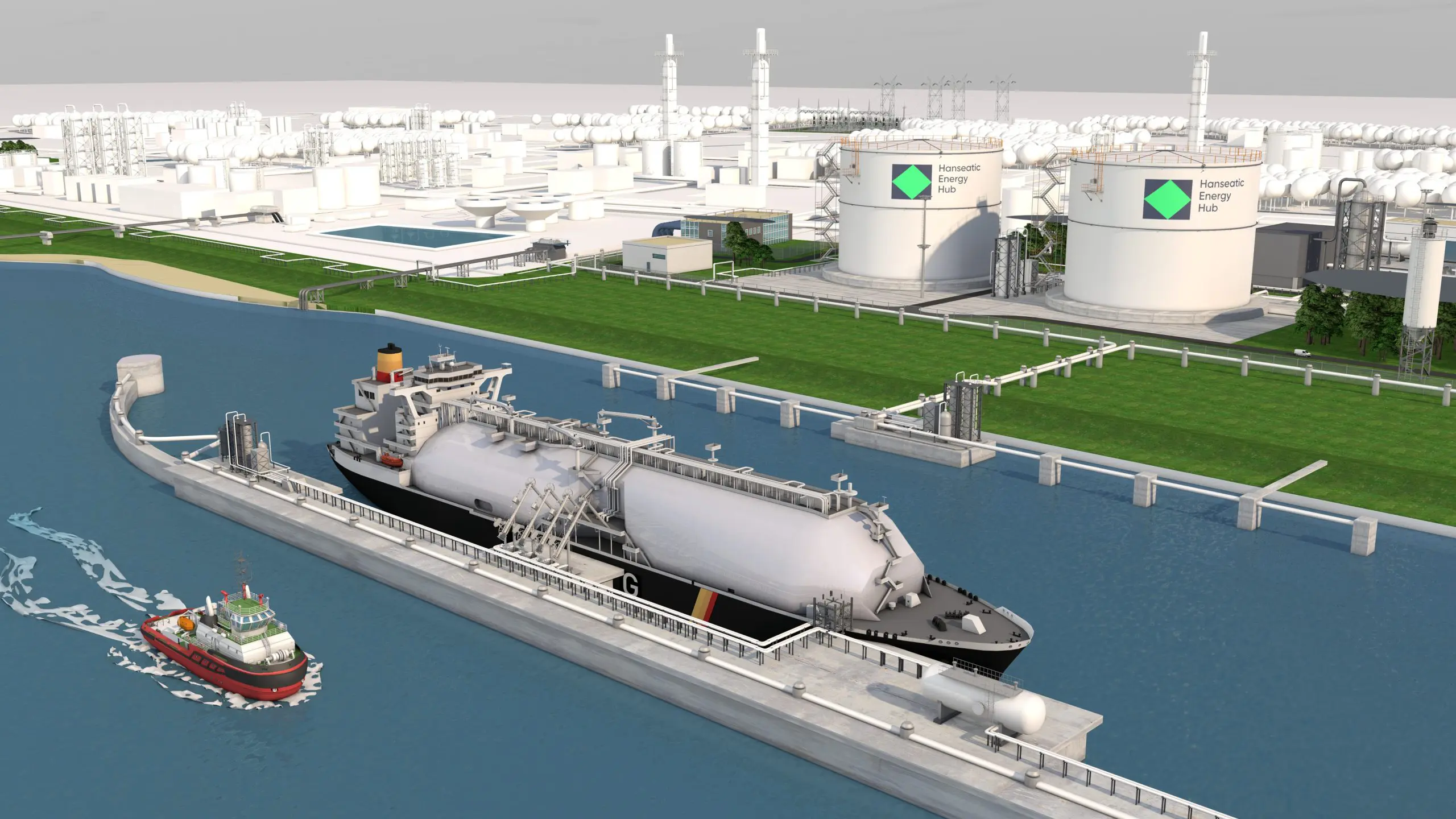Germany’s Hanseatic Energy Hub, developer of the Stade LNG import terminal near Hamburg, has appointed Alejandro Marjalizo as its chief technical and operations officer and management board member.
Marjalizo joins HEH from Spanish LNG terminal operator and HEH’s shareholder, Enagas, according to a statement by HEH.
He will be responsible for the technical management of the LNG terminal project and and will report directly to CEO Jan Themlitz.
Over the past 13 years, Marjalizo has worked as a project engineer and as a project manager at LNG terminals in multiple locations, including Huelva, Cartagena, and Barcelona as well as Altamira, Mexico, HEH said.
Enagas said in March it has increased its stake in HEH from 10 to 15 percent.
Commissioning in 2027
Following more than six years of planning and permitting, the HEH project in Stade is now entering the construction phase.
In March, HEH’s shareholders Partners Group, Enagas, Dow, and Buss Group took the final investment decision to build the Stade LNG import terminal worth about 1 billion euros ($1.07 billion). This is Germany’s first onshore LNG terminal.
This final investment decision allows the Hanseatic Energy Hub to make an “important contribution” to securing Europe’s energy supplies following its planned commissioning in 2027, it said.
Initially, HEH will serve as an import terminal for LNG, SNG (synthetic natural gas) and liquefied biomethane and, subsequently, for ammonia, as a hydrogen-based energy carrier.
Once the LNG terminal enters into service, the FSRU Energos Force, chartered by Germany’s federal government, will set sail from Stade.
The 174,000-cbm FSRU, which arrived in Stade in March, will “continue to secure the gas supply in the short term until the more efficient land-based terminal is completed,” HEH said.
90 percent of volumes booked
The LNG terminal will have a total capacity of 13.3 billion cubic meters of natural gas per year.
HEH said that 90 percent of this volume has been booked long-term by three European energy majors EnBW, SEFE, and CEZ.
The remaining capacity is reserved for short-term bookings.
Long-term contracts include the option to switch to hydrogen-based energy carriers at a later stage, it said.

